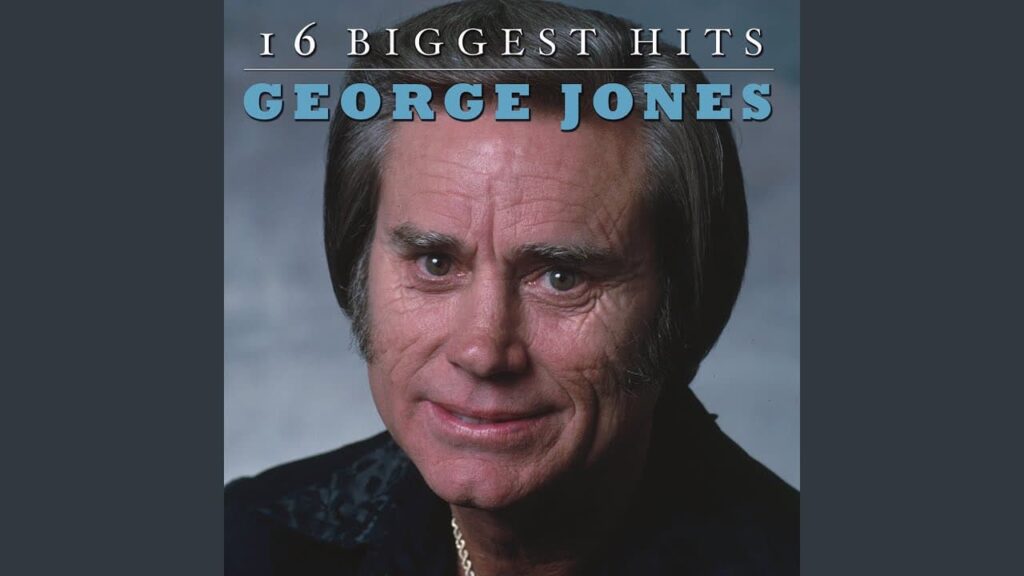
A Stark and Unflinching Portrait of Heartbreak and Oblivion: When George Jones Sang, “If Drinkin’ Don’t Kill Me (Her Memory Will).”
“If Drinkin’ Don’t Kill Me (Her Memory Will),” a brutally honest and deeply affecting ballad from the legendary George Jones, stands as a stark testament to the destructive power of lost love and the numbing allure of alcohol. Released in 1981 as a single and the title track from his critically acclaimed and commercially successful album “If Drinkin’ Don’t Kill Me,” this poignant song reached number eight on the Billboard Hot Country Singles chart, becoming one of his most iconic and enduring expressions of profound heartbreak. The album “If Drinkin’ Don’t Kill Me” itself was a significant success, reaching number four on the Billboard Top Country Albums chart, a testament to Jones’s continued relevance and his unmatched ability to connect with listeners through raw, unfiltered emotion. The song’s meaning is a stark and desperate declaration from a man so utterly devastated by the memory of a lost love that he believes the only two possible outcomes are death by alcohol or a slow demise caused by the unrelenting pain of her absence. It transforms a personal tragedy into a universally relatable, albeit harrowing, ballad of grief and the destructive coping mechanisms we sometimes employ.
Imagine the dimly lit corners of a honky-tonk, the clinking of glasses a constant soundtrack to sorrow, and the sound of George Jones’s voice, filled with a raw, almost unbearable pain as he sings, “If Drinkin’ Don’t Kill Me (Her Memory Will).” His unique ability to convey such profound and unvarnished emotion with his distinctive vocal delivery is truly captivating. Featured on his powerful album of the same name, “If Drinkin’ Don’t Kill Me,” this track wasn’t just a country song; it was a visceral portrayal of a man teetering on the brink, his spirit crushed by the weight of lost love. The classic country arrangement, with its mournful steel guitar and simple, heart-wrenching melody, provides the perfect backdrop for Jones’s raw and honest vocals. His delivery, filled with a lifetime of lived experience and the unmistakable tremor of deep sorrow, made the song an instant and enduring classic for those who understood the crushing weight of a broken heart.
The story behind “If Drinkin’ Don’t Kill Me (Her Memory Will)” involves the songwriting talents of Harlan Sanders and Dickey Lee, who crafted a lyric that unflinchingly captured the devastating intersection of heartbreak and the bottle. Their ability to articulate such raw and desperate emotion was key to the song’s profound impact. For George Jones, whose own life was often marked by personal struggles and the demons of addiction, the song resonated on a deeply personal level. His interpretation wasn’t just a performance; it was a raw and honest outpouring of pain, lending an authenticity to the lyrics that few other artists could have matched. The song became a signature piece for him, a stark reminder of the destructive power of grief and the perilous paths we sometimes take in an attempt to escape its clutches.
For those of us who have ever known the crushing weight of a lost love, the feeling that life has lost its color and the temptation to seek solace in the bottom of a glass, George Jones’s “If Drinkin’ Don’t Kill Me (Her Memory Will)” evokes a sense of profound and perhaps unsettling recognition. It reminds us of the darkest corners of heartbreak and the destructive paths we might be tempted to tread when grief feels insurmountable. Jones’s raw, unwavering voice and the song’s mournful melody offer a moment of shared, albeit painful, understanding, a stark acknowledgment of the devastating impact of lost love and the perilous allure of trying to numb the pain. It remains a powerful and enduring country ballad, a quintessential expression of profound sorrow and the destructive dance between heartbreak and oblivion.